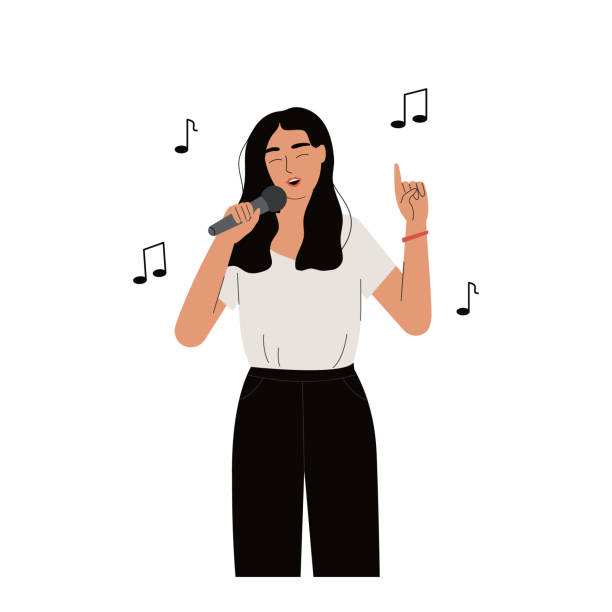La Mejor Fiesta De Colombia: ¡Los Carnavales De Barranquilla!

¡Hola! Hoy les traemos la historia del origen del carnaval de barranquilla que es un evento cultural celebrado en Colombia. Se realiza cada año a mitad de febrero o principios de marzo. El carnaval de Barranquilla es un espectáculo en el que se expresan todas las variedades culturales y el folclor de la Costa Caribe Colombiana, además de las manifestaciones locales, como la música popular y el baile. Es considerado el segundo carnaval más multitudinario del mundo y uno de los más conocidos internacionalmente, después del carnaval en Río de Janeiro. Historia Tiene antecedentes próximos a la celebración que se efectuaba en Cartagena de Indias, en época de la Colonia, como fiesta de esclavos en forma de entretenimiento; y durante esa época aparecían por las calles los negros con instrumentos típicos y atuendos especiales, danzando y cantando. La tradicional novena de La Candelaria, en Cartagena, sirvió de marco inspiración ya que, en ese momento había un día de fiesta para los negros esclavos traídos de África. Esas fiestas constituyen fuente de las principales danzas del Carnaval de Barranquilla. Hay muchas teorías que afirman que el primer carnaval de Barranquilla fue en 1908. Ahora que ya sabes sobre la historia del Carnaval de Barranquilla y cómo ha evolucionado hasta el presente, ¿Te animarías a venir para los carnavales de Barranquilla 2023? ¡Te esperamos!
Diferencias Entre El Español De España Y Latinoamérica

¡Hola a todos! Hoy vamos a hablar de las diferencias más grandes entre el vocabulario que usamos en Latinoamérica y el de España. Hay varios acentos que hacen el sonido del Español muy diferente de un país a otro incluso dentro de Latinoamérica. Es una experiencia muy diferente escuchar a alguien con el acento y entonación de un país a otro, sin embargo entre Latinos nuestro acento y vocabulario son semejantes. Una de las diferencias más considerables entre la pronunciación de España y la de Latinoamérica es el “ceceo”, habitual de España. Veamos las diferencias más importantes en el vocabulario entre España y América Latina. ESPAÑA LATINOAMÉRICA SIGNIFICADO 1. TELÉFONO MÓVIL/ MÓVIL CELULAR CELL PHONE 2. ORDENADOR COMPUTADORA/A COMPUTER 3. PISO O APARTAMENTO DEPARTAMENTO O APARTAMENTO DEPARTMENT OR APARTMENT 4. AUTOBÚS / BUS BUS / CAMIÓN / COLECTIVO BUS / TRUCK / COLLECTIVE 5. PASTO CESPED GRASS 6. PLATILLO PLATO DISH 7. COCHE CARRO / AUTO CAR 8. CONDUCIR MANEJAR DRIVE 9. BILLETE BOLETO TICKET 10. GAFAS ANTEOJOS / LENTES GLASSES / LENSES 11. CHULO BONITO PRETTY 12. HACERSE DAÑO LASTIMARSE INJURE 13. COGER AGARRAR / TOMAR GRAB / TAKE 14. ZUMO JUGO JUICE 15. DARSE PRISA APURARSE HURRY 16. TIRAR / ECHAR BOTAR THROW 17. TARTA TORTA / PASTEL CAKE / CAKE 18. CAMARERO MESERO WAITER 19. FONTANERO PLOMERO PLUMBER 20. MALETERO BAÚL / MALETERA TRUNK / TRUNK 21. NEUMÁTICO LLANTA TIRE 22. CALCETINES MEDIAS SOCKS 23. REFRIGERADOR NEVERA FRIDGE 24. SUJETADOR BRASIER / SOSTEN BRA 25. BRAGAS PANTALETA PANTIES 26. ME DA VERGUENZA ME DA PENA I FEEL SORRY 27. MANTA COBIJA BLANKET 28. GRIFO LLAVE KEY 29. APETECER TENGO GANAS DE I WANT TO 30. LA SARTEN EL SARTÉN THE PAN 31. BOLÍGRAFO LAPICERO PENCIL 32. DINERO PLATA SILVER 33. CERILLA FÓSFORO MATCH 34. ROTULADOR MARCADOR MARKER 35. PISO APARTAMENTO / DEPARTAMENTO APARTMENT / DEPARTMENT 36. TENER RESACA ESTAR ENGUAYABADO / TENER CRUDA BEING ENGUAYABADO / HAVING RAW 37. PONERSE DE PIE PARARSE STOP 38. PERCHA GANCHO CLOTHES HANGERS 39. DEVOLVER REGRESAR GO BACK 40. CHAQUETA CHAMARRA JACKET 41. PATATA PAPA POTATO 42. SETAS HONGOS FUNGUS 43. ¿QUÉ HORA ES? ¿QUÉ HORAS SON? WHAT TIME IS IT? 44. LA SAUNA EL SAUNA THE SAUNA 45. LA RADIO EL RADIO THE RADIO 46. MANTEQUILLA DE CACAHUATE MANTEQUILLA DE MANÍ PEANUT BUTTER 47. CARTERA BILLETERA WALLET 48. SUELO PISO FLOOR 49. ENFADARSE ENOJARSE ANNOY 50. ECHAR DE MENOS EXTRAÑAR MISS 51. GUAPO HERMOSO BEAUTIFUL 52. QUITARSE (ALGO) SACARSE GET OUT 53. APARCAR ESTACIONAR / PARQUEAR PARK 54. ATAR AMARRAR TIE UP 55. GRIPE GRIPA FLU 56. AQUÍ ACÁ HERE 57. ESTANCIA ESTADÍA STAY 58. FLORISTERÍA FLORERÍA FLOWER SHOP 59. LIO PROBLEMA PROBLEM 60. TARDAR DEMORARSE DELAY Está claro que las diferencias entre el español que en España y en América Latina no genera ningún inconveniente para comunicarnos en cualquier pais de habla hispana.
¿Cómo usar el verbo Haber?

¡Hola a todos! El verbo HABER es un verbo impersonal que es usado en la tercera persona del singular. Veamos algunos ejemplos en diferentes tiempos gramaticales: 1. Hay: There is, There are. Se usa para hablar sobre la existencia de cosas, personas, animales u objetos. It is used to talk about the existence of things, people, animals, or objects. 2. Hubo: There was, There were. Se usa con las cosas que pasaron una vez en un momento específico. It is used when we talk about something that continuously existed in the past. 3. Había: There was, There were. Se usa cuando hablamos de algo que continuamente existía en el pasado. It is used when we talk about something that continuously existed in the past.
4 Ways to use the verb “Convertirse”

¡Hola a todos! El verbo CONVERTIRSE es un verbo irregular y puede usarse en diferentes contextos, pero su significado principal es “To become”. Veamos cuales son los usos de este verbo: 1. Convertirse 2. Hacerse / Llegar a ser 3. Volverse 4. Ponerse
Los rituales más curiosos en Latinoamérica para dar la bienvenida al Año Nuevo

Todos conocemos la tradición de las doce uvas que atraen un año de buena suerte y prosperidad, pero en América Latina hay muchos rituales más para dar la bienvenida al nuevo año. Aquí les presentamos diez. Quemar muñecos En Ecuador encontraron una manera parecida de deshacerse especialmente de las cosas malas del año que concluye. A medianoche se queman muñecos de papel o hechos con ropa vieja que pueden representar personajes famosos, reales o de ficción. La práctica de la quema de muñecos se extiende también a Nicaragua (donde se le llama “El muñeco viejo”), Colombia, Perú, México y Venezuela. Barrer la casa En México se pueden encontrar diversas tradiciones, pero una de las costumbres más peculiares es la de barrer la casa. El objetivo es sacar las malas energías barriendo. Hay que empezar con la escoba desde la parte más lejos de la puerta y barrer cuidadosamente hacia la calle. Y así el nuevo año puede empezar con una casa impecable. Tirar cubos de agua por la ventana En Uruguay se celebra “el baldazo”, que es tirar cubos llenos de agua por la ventana. El objetivo es ahuyentar todo lo malo de la casa y llenarla de buena energía para el nuevo año. En Cuba hay algo similar llamado “el cubazo”, que al igual que en Uruguay, consiste en lanzar cubos de agua por ventanas y balcones. Llevar ropa interior en rojo o amarillo Usar ropa interior amarilla es quizás, junto con las doce uvas, una de las costumbres más populares en muchos países de América Latina. Se dice que la ropa interior amarilla trae suerte, prosperidad y productividad para el nuevo año. La ropa interior roja trae amor y pasión. Caminar con una maleta Los colombianos tenemos una costumbre más específica. En el último día del año, es tradición en Colombia caminar por las calles con una maleta completamente llena, y preferiblemente con amigos. Con el deseo de que el nuevo año esté lleno de viajes. Vestir de ropa blanca En Brasil, la gente celebra el cambio de año vestida de blanco, símbolo de pureza y nuevos comienzos, también ponen flores en el mar para honrar a Yemanja, la diosa del mar. La costumbre de vestir de blanco también es conocida en otros países de Sudamérica. Llevar dinero en el zapato Este ritual muy popular en Chile supone traer prosperidad económica en el nuevo año. Adivinar el futuro con tres papas En Perú, se ponen tres papas debajo de un sillón o un sofá. Una está pelada, otra sin pelar y otra solo medio pelada. Se supone que la papa sin pelar traerá un buen año con bendiciones economicas, la medio pelada un año normal, la pelada predice preocupaciones financieras. Romper un huevo en un vaso de agua La costumbre más extendida en El Salvador es romper un huevo en un vaso de agua y dejarlo toda la noche en la ventana al aire libre. Por la mañana, la figura que revele el huevo será lo que te traerá la fortuna el año siguiente. ¡Te deseo un feliz y próspero año nuevo!
¿Cómo se celebra la Navidad en España y América Latina?

¡Hola a todos! Hoy vamos a aprender sobre la navidad en España y América Latina, leyendo un corto texto. Practica el vocabulario navideño navegando en la cultura hispana ¡FELIZ NAVIDAD Y PROSPERO AÑO NUEVO! Las vacaciones de Navidad duran dos semanas y las fiestas más importantes son Nochebuena, Navidad, Nochevieja y Reyes. En las casas se usa el tradicional árbol, unas figuras que representa el nacimiento de Jesús, y un gran árbol donde se colocan los regalos. El 24 de diciembre se celebra Nochebuena. Es tradición cantar villancicos y comer un menú especial con marisco, pavo o jamón. Los dulces típicos en España son el turrón, el mazapán y los polvorones. En Colombia por ejemplo tenemos la natilla, que es un postre tradicional para esta fecha tan especial y los buñuelos que es una comida frita para disfrutar durante la navidad. El 31 de diciembre es Nochevieja, la última noche del año, y se festeja comiendo doce uvas cuando el reloj marca las 12. Después, toda las personas se dicen “Feliz año” y brindan con vino. El 5 de enero los tres Reyes Magos, Melchor, Gaspar y Baltasar traen alegria para todos los niños de España y América Latina. Los niños juegan con sus regalos nuevos. Vocabulario de navidad Decorations • El árbol/arbolito de Navidad – Christmas tree • Los adornos – Decorations • Las luces – Lights • Las velas – The candles • Muñeco de nieve – Snow man Food & Drink • Las galletas/galletitas – Cookies • El pavo – Turkey • La champaña – Champagne • El vino – Wine Other Terms • Los regalos – Presents • Brindar – To make a toast • El brindis – Toast • Papá Noel/San Nicolás – Santa Claus • El villancico – Christmas carol Religious Terms • ¡Que Dios te bendiga! – May God bless you! • El niño Jesús – Baby Jesus • La virgen María – Virgin Mary • La misa – Mass • La Misa de Gallo – A Christmas mass held around midnight. • El belén/pesebre – Nativity scene ¿Has entendido el texto? ¡Por favor conteste las preguntas! ¿Qué dulces comen los españoles en Nochebuena? a. Mazapán, jamón y turrón b. Turrón, mazapán y polvorones c. Polvorones, pavo y mazapán d. Turrón, marisco y pavo ¿Cuánto tiempo dura las vacaciones de Navidad? a. Dos semanas b. Dos años c. Dos días d. Dos meses ¿Que hace la gente a las doce? a. Se dicen “feliz año” y brindan con vino b. Brindan con cava c. Se van a casa d. Se comen las uvas ¿Qué dulce es tipico durante navidad en Colombia? a. Mazapán b. Roscón de Reyes c. La natilla d. Turrón
Vocabulario de canciones

¡Hola a todos! Hoy vamos a aprender expresiones comunes usando el vocabulario de una canción en Español. practica todos este tema con solo escucharla y cantarla. La Bachata Manuel Turizo Letra Te bloqueé en InstaPero por otra cuenta veo tus historiasTu número lo borréNo sé para qué si me lo sé de memoria. Me hiciste dañoY así te extrañoY aunque sé que un día te voy a olvidarAún no lo hagoEs complicadoTodo lo que hicimos me gusta recordar. Ando manejandoPor las calles que me besasteOyendo las cancionesQue un día me dedicasteTe diría que volvierasPero eso no se pideMejor le pido a Dios que me cuide. Porque ando manejandoPor las calles que me besasteOyendo las cancionesQue un día me dedicasteTe diría que volvierasPero eso no se pideMejor le pido a Dios que me cuide. Que me cuide de otraQue se parezca a tiNo quiero caer como hice por tiOjalá te enamoresTe haga lo mismo que me hiciste a míTú me enseñasteA no amar a cualquieraY también como no quiero que me quieranNo, éramos tres en una relación de dosNo te perdono, pídele perdón a DiosDije que te olvidé y la verdad es que yo…. Ando manejandoPor las calles que me besasteOyendo las cancionesQue un día me dedicasteTe diría que volvierasPero eso no se pideMejor le pido a Dios que me cuide. Porque ando manejandoPor las calles que me besasteOyendo las cancionesQue un día me dedicasteTe diría que volvierasPero eso no se pideMejor le pido a Dios que me cuide. Vocabulario & expresiones comunes: Te extraño: I miss you. Me hiciste daño: You hurt me. Aún no lo hago: I still do not do it. Me gusta recordar: I like to remember. Todo lo que hicimos me gusta recordar: Everything we did I like to remember. Ando manejando: I’m driving. Oyendo las canciones: Listening to the songs. Le pido a Dios que me cuide: I ask God to take care of me. No te perdono: I do not forgive you. Pídele perdón a Dios: Ask God for forgiveness.
¿Cómo usar el verbo ponerse?

¡Hola a todos! El verbo PONERSE es un verbo reflexivo e irregular, pero tambien puede usarse en diferentes contextos, pero generalmente lleva el mismo significado principal, que es “to put”. Veamos cuales son los usos de este verbo: Conjugación Yo me pongo Tu te pones El / Ella se pone Nosotros / as nos ponemos Ellos / Ellas / Ustedes se ponen Conjugación usando dos verbos (Por ejemplo: querer – Want) Yo quiero ponerme Tu quieres ponerte El / Ella quiere ponerse Nosotros / as queremos ponernos Ellos / Ellas / Ustedes quieren ponerse 1. Ponerse a hacer algo: Get to do something. Voy a ponerme a limpiar la casa. I’m going to start cleaning the house. Voy a ponerme a organizar mi oficina antes de comenzar con mis reuniones. I’m going to organize my office before starting my meetings. ¿Vas a ponerte a hacer algo? Are you going to do something? Tengo un examen mañana, voy a ponerme a estudiar. I have an exam tomorrow, I’m going to start studying. Voy a ponerme a regar las plantas. I’m going to start watering the plants. No quiero ponerme a trabajar los domingos, prefiero descansar. I don’t want to get to work on Sundays, I prefer to rest. Lucia se puso a estudiar para su examen final. Lucia started studying for his final exam. Ella quiere ponerse a trabajar durante el verano. She wants to work during the summer. ¿Quieres ponerte a estudiar conmigo? Do you want to study with me? Quiero ponerme a estudiar más Español durante mi tiempo libre. I want to study more Spanish during my free time. 2. Ponerse algo: Put something on. Yo me puse una camisa negra. I put on a black shirt. Yo voy a ponerme los zapatos negros para el matrimonio. I’m going to wear black shoes for marriage. No quiero ponerme algo que no me gusta. I don’t want to wear something I don’t like. Quiero ponerme un vestido durante la celebración de navidad. I want to get a dress during Christmas celebration. Voy a ponerme un abrigo porque es invierno. I’m going to wear a coat because it’s winter. Camilia se puso un vestido rojo para la fiesta. Camila put on a red dress to the party. Yo voy a ponerme muchos vestidos porque es verano. I’m going to put on a lot of dresses because it’s summertime. Quiero ir a la playa para ponerme vestido de baño. I want to go to the beach to wear a bathroom dress. 3. Ponerse feliz / de buen humor / triste / de mal humor / enfermo: Get happy / sad / angry / sick. Yo me puse feliz porque mi amigo me trajo flores. I got happy because mi friend brought me flowers. Mi hija se puso triste porque perdió el examen. My daugther got sad because he failed the exam. Me pongo feliz cuando recibo regalos. I get happy when I get presents. Me pongo feliz cuando tengo clases de Español con mi profesora. I get happy when I have Spanish classes with my teacher. Me pongo de mal humor cuando no como lo suficiente. I get brave when not as enough. Me pongo enfermo cuando bebo mucho tequila. I get sick when I drink a lot of tequila. Me pongo feliz cuando es verano. I get happy when it is summer. Me pongo feliz cuando mi esposo limpia la casa. I get happy when my husband cleans the house.
4 Formas de usar el verbo “To Put”

¡Hola a todos! El verbo PONER es un verbo irregular y puede usarse en diferentes contextos, pero siempre lleva el mismo significado principal, que es “to put”. Veamos cuales son los usos de este verbo: Conjugación Yo pongo Tu pones El / Ella pone Nosotros / as ponemos Ellos / Ellas / Ustedes ponen Para dar ordenes la forma que adquiere el verbo Poner es PON. Por ejemplo: Lucia, pon atención cuando hablo. To give orders, the form that the verb to put acquires is PON. For example: Lucia, pay attention when I speak. 1. Poner algo en un lugar: Put something in a place. Yo siempre pongo las llaves sobre la mesa. I always put the keys on the table. I always put the keys on the table. I always put the keys on the table. Mi amiga nunca pone la silla en su lugar despues de comer. My friend never puts the chair in her place after eating. Yo siempre pongo mi telefono en mi bolso. I always put my phone in my bag. Yo puse todos los perfumes en la maleta. I put all the perfumes in the suitcase. No olvides poner la leche en la nevera. Don’t forget to put the milk in the fridge. Yo puse mi computador en mi maleta de mano. I put my computer in my carry-on bag. 2. Agregar / Añadir: Add. Ponle limón, sabe más rico. Put lemon in it. It tastes better. Ponle más carne a la sopa. Add more meat to the soup. Ponle más sal al arroz. Add more salt to the rice. Ponle más salsa al pollo. Put more sauce on the chicken. Ponle hielo al agua. Put ice in the water. Ponle azúcar a la limonada. Put sugar in the lemonade. No le pongas tanta azucar al jugo. Don’t put so much sugar in the juice. No le pongas hielo a la limonada. Don’t put ice in the lemonade. No le pongas picante a mi taco. Don’t spice up my taco. 3. Poner atención: Pay attention. Linda, pon atención, te estoy hablando. Linda, pay attention to me, I’m talking to you. Pon más atención cuando digo algo. Pay more attention when I say something. ¿Por qué no estas poniendo atención a lo que digo? Pay more attention when I say something. Pon atención cuando los mayores estan hablando. Pay attention when the elders are speaking. Los niños no están poniendo atención a la profesora. The kids aren’t paying attention to the teacher. Pon atención al cruzar la calle. Pay attention when crossing the street. 4. Poner la alarma: Set the alarm. Voy a poner la alarma para las cinco de la mañana. I’m going to set the alarm for five in the morning. ¿A qué hora pusiste la alarma? What time did you set the alarm? Voy a poner la alarma para despertar muy temprano mañana por la mañana. I’m going to set the alarm to wake up very early tomorrow morning. No quiero poner la alarma para despertar temprano los domingos. I don’t want to set the alarm to wake up early on Sundays. No puse la alarma para despertar, por eso perdí la clase. I didn’t set the alarm to wake up, that’s why I missed class. Se me olvido poner la alarma, por eso perdí el vuelo. I forgot to set the alarm, that’s why I missed the flight. Julia no puso la alarma y por eso no se despertó. Julia didn’t set the alarm and that’s why he didn’t wake up.
5 Formas De Usar El Verbo Faltar

¡Hola a todos! El verbo FALTAR puede usarse en diferentes contextos, pero siempre lleva el mismo significado principal, que es “to lack something”. Veamos cuales son los usos de este verbo: 1. Algo que no tenemos / Que necesitamos: When you lack / need something. Estas un poco flaco, te falta comer más proteína. You are very skinny, you need to eat more protein. ¿Tienes dinero? Me faltan 3000 pesos para comprar un sándwich. Do you have money to lend me? I need 3000 pesos to buy a sandwich. Me falta organizar algunos documentos para la reunión de mañana. I need to organize some documents for tomorrow’s meeting. Me falta comprar queso para la cena de navidad. I need to buy cheese for Christmas dinner. Nos falta mucho trabajo para salir de la oficina. We lack a lot of work to get out of the office. 2. Algo no está en el lugar que debe estar: Something is not in the place where it is supposed to be. Antes del viaje empaqué todo pero me falta mi camisa, creo que olvide empacarla. Before the trip I packed everything but I lack my shirt, I think I forget to pack it. No encuentro mi pantalón rojo, y también me falta la camisa blanca, creo que deje cosas en el hotel. I don’t find my red pants, and my white shirt is also missing, I think I left stuff at the hotel. Tengo casi todos los documentos para firmar el contrato, excepto uno, me falta el más importante pero esta en el carro. I have almost all the documents to sign the contract, except one, I am most important but it is in the car. Tenemos todos los ingredientes para la cena de acción de gracias, pero aún nos falta el pavo. We have all the ingredients for thanksgiving dinner, but we still lack the turkey. 3. Una persona no está donde se supone que debe estar: Someone is not where he/she is supposed to be. Falto mucha gente a la reunión hoy, quizás fue por causa de la lluvia. A lot of people didn’t attend the meeting, maybe it was because of the rain. Voy a faltar a la fiesta, porque no me siento bien. I’m going to miss the party because I don’t feel good. No quiero faltar a la cena con mis colegas pero es la graduación de mi hijo. I do not want to miss dinner with my colleagues but it is my son’s graduation. Voy a faltar a la reunión porque tengo un vuelo en una hora. I will miss the meeting because I have a flight in an hour. No puedo faltar a la oficina el jueves porque vamos a firmar un contrato importante con unos socios extranjeros. I cannot miss the office on Thursday because we are going to sign an important contract with foreign partners. 4. Alguien no ha hecho algo que debe hacer: Someone hasn’t done something they should have done. Ya limpie mi habitación pero todavía me falta lavar la ropa. I already cleaned my room but I still have to do the laundry. Acabo de terminar de resporder todos los correos electronicos pero aún me falta hacer una videoconferencia con mis empleados. I just finished answering all emails but I still have to make a video conference with my employees. He viajado mucho, pero todavia me falta viajar a Latinoamerica. I have traveled a lot but still have to travel to Latin America. Finalicé mi trabajo por hoy pero me falta responder algunos mensajes de texto. I finished my work for today but I need to answer some text messages. Nos falta trabajar un poco más duro para lograr resultados a corto plazo. We need to work a little harder to achieve short -term results. 5. Alguien no ha recibido algo que debe recibir: Someone hasn’t been given something. ¿Quién falta por pizza? Who hasn’t received pizza yet? ¿Quién falta por vino? Who is missing wine? ¿Quién falta por postre? Who is missing for dessert? ¿Quién falta por recibir regalo? Who remains to receive a gift? Algunas frases comunes: Me haces falta: I miss you. La falta de ejercicio causa obesidad: The lack of exercise causes obesity. La falta de agua causa de deshidratación: The lack of water causes dehydration.
